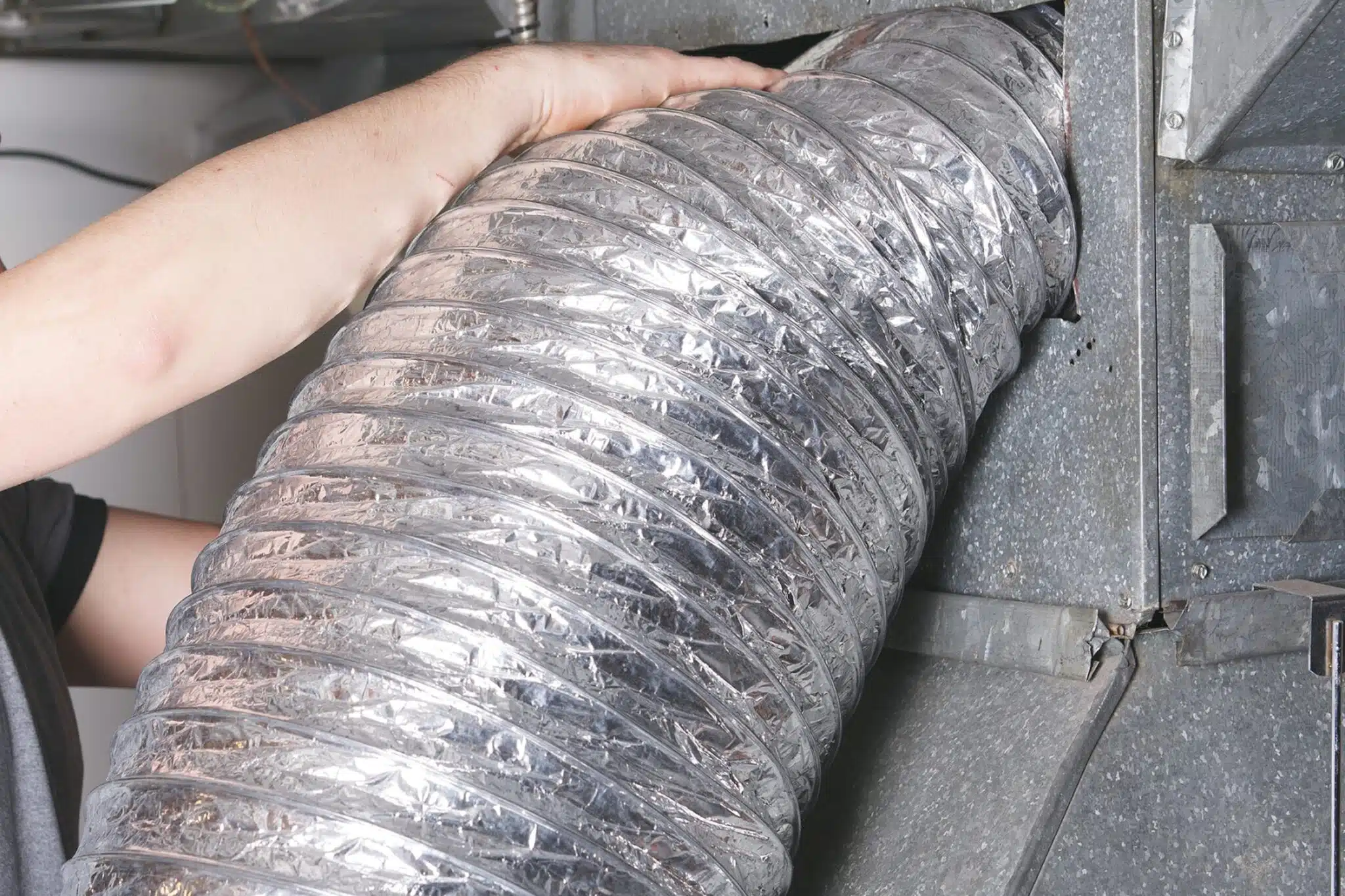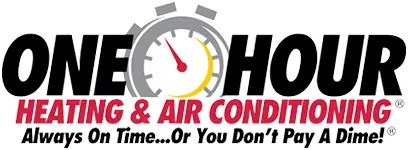In Lancaster, PA, and surrounding areas like Harrisburg and York, commercial HVAC systems are the backbone of business comfort and efficiency. Ensuring these systems run smoothly is not just about comfort but also about preventing costly downtime. Regular maintenance is key to achieving this, as it helps identify potential issues before they escalate. This introduction will guide you through essential practices that keep commercial HVAC systems in top condition.
Understanding the importance of commercial HVAC systems maintenance can significantly impact your business’s operational costs and sustainability. In cities like Harrisburg, PA, where weather conditions can vary greatly, the demand on these systems can be intense. Regular checks and balances ensure that your system is not only running efficiently but also conserving energy where possible. It’s a proactive approach to managing your business’s climate control needs.
In York, PA, businesses often face the challenge of keeping their environments comfortable for both employees and customers. This is where the expertise of HVAC professionals comes into play. They are equipped with the knowledge and tools to perform comprehensive maintenance tasks. From cleaning air ducts to checking for leaks and ensuring the thermostat is accurately calibrated, these steps are crucial for system longevity.
Lastly, the commitment to regular maintenance of commercial HVAC systems signifies a dedication to quality and reliability in your business operations. It’s about creating a comfortable atmosphere that promotes productivity and customer satisfaction. With the right maintenance practices, businesses in Lancaster, Harrisburg, and York can enjoy the benefits of an efficient, reliable HVAC system year-round. This foundation sets the stage for exploring the specific maintenance practices that are essential for commercial HVAC systems.
Understanding Commercial HVAC Systems
Understanding commercial HVAC systems goes beyond just recognizing their role in providing comfort. It involves appreciating how these systems contribute to the overall functionality and productivity of a business. In Lancaster, PA, for instance, the efficiency of these systems directly impacts the work environment, influencing both staff performance and customer experience. Regular maintenance ensures these systems operate at their best, fostering a positive atmosphere for everyone involved.
In Harrisburg, PA, the fluctuating weather demands a lot from commercial HVAC systems. Maintaining these systems is not just about responding to current weather conditions but also about anticipating changes. By doing so, businesses can ensure their systems adapt efficiently, maintaining a consistent and comfortable environment. This proactive approach to maintenance helps in avoiding sudden breakdowns that could disrupt business operations.
Meanwhile, in York, PA, the focus on sustainability and energy efficiency has grown. Commercial HVAC systems play a significant role in this area. Through regular maintenance, businesses can optimize their systems to use energy more efficiently, contributing to environmental sustainability while also enhancing system performance. This not only supports the planet but also ensures that the business is seen as a responsible community member.
Finally, understanding the intricacies of commercial HVAC systems allows businesses to make informed decisions about their maintenance. Whether it’s scheduling regular inspections or identifying when a system needs more comprehensive servicing, this knowledge is invaluable. It ensures that businesses can rely on their HVAC systems to provide a comfortable and efficient environment, crucial for both employee productivity and customer satisfaction. By prioritizing the maintenance of these systems, businesses in Lancaster, Harrisburg, and York can achieve a balance between comfort, efficiency, and sustainability.
The Importance of Regular Filter Replacement
One of the most crucial aspects of maintaining commercial HVAC systems involves the regular replacement of filters. This simple yet effective practice ensures that air flow remains consistent and clean, directly impacting the air quality within a business. In Harrisburg, PA, where seasonal changes can introduce a variety of airborne particles, keeping filters fresh can significantly reduce the strain on the system. This not only helps in maintaining an optimal working environment but also prolongs the lifespan of the system itself.
In York, PA, businesses recognize the value of this maintenance step in preserving indoor air quality for both employees and customers. Regular filter changes prevent the accumulation of dust, pollen, and other debris, which can lead to poor air quality and potential health issues. It’s a straightforward measure that supports the overall efficiency of commercial HVAC systems. By ensuring clean filters, businesses can avoid unnecessary stress on their systems, leading to smoother operation and fewer breakdowns.
Moreover, the practice of replacing filters regularly contributes to the energy efficiency of commercial HVAC systems. When filters are clogged, the system has to work harder to circulate air, using more energy in the process. By keeping these systems running efficiently, businesses can contribute to environmental sustainability while also optimizing their operational performance. It’s an essential step that aligns with the goals of energy conservation and responsible business practices.
Lastly, the commitment to this maintenance task reflects a business’s dedication to creating a comfortable and healthy environment. It’s a proactive approach that showcases a business’s investment in the well-being of its workforce and clientele. In Lancaster, PA, and surrounding areas, adopting such maintenance practices is a testament to a business’s reliability and attention to detail. It ensures that commercial HVAC systems continue to provide the necessary comfort and efficiency needed for successful operations.
Scheduling Professional Inspections for Commercial HVAC Systems
Scheduling professional inspections for commercial HVAC systems is a proactive step businesses in Harrisburg, PA, take to ensure their systems’ efficiency and reliability. These inspections allow experts to assess and diagnose any potential issues before they become significant problems. By having a professional evaluate the system, businesses can avoid unexpected breakdowns that could disrupt operations. This practice not only maintains the system’s performance but also reinforces a business’s commitment to providing a comfortable environment.
In York, PA, businesses understand the value of expert oversight in maintaining their commercial HVAC systems. A professional inspection can identify areas for improvement, such as updating parts or optimizing system settings for better energy use. This attention to detail ensures that the system operates at peak efficiency, contributing to a sustainable and cost-effective business operation. It’s an investment in the system’s longevity and the business’s future.
Moreover, these inspections offer an opportunity to clean components that are crucial for the system’s operation, like coils and ducts, which might be overlooked otherwise. Ensuring these parts are clean helps maintain air quality and system efficiency. Professionals bring the tools and expertise needed to perform these tasks thoroughly, providing peace of mind for businesses. This level of care demonstrates a dedication to excellence and health standards within the workplace.
Lastly, regular professional inspections are a testament to a business’s dedication to its employees and customers in Lancaster, PA. They ensure that commercial HVAC systems remain reliable year-round, providing a comfortable and safe environment. This practice showcases a business’s investment in quality and reliability, underlining the importance of maintaining a productive and satisfactory atmosphere for all.
The Role of Thermostat Calibration in System Efficiency
Calibrating the thermostat is a critical step in maintaining the efficiency of commercial HVAC systems. In Harrisburg, PA, businesses find that proper thermostat settings ensure the system operates effectively, matching the actual needs of the space without overworking. This calibration helps in maintaining a consistent temperature, contributing to the comfort and productivity of the workplace. It’s a simple yet impactful way to optimize system performance and energy use.
In York, PA, the process of thermostat calibration also plays a significant role in energy conservation. By ensuring the thermostat accurately reflects desired temperatures, businesses can avoid unnecessary heating or cooling. This not only supports environmental sustainability but also enhances the overall operation of commercial HVAC systems. Proper calibration ensures that these systems are not exerting more energy than needed, aligning with efforts to maintain efficient and responsible operations.
Regularly checking and adjusting the thermostat settings can prevent frequent cycling of the HVAC system. This is crucial for prolonging the life of the system and maintaining air quality. When the system cycles too often, it can lead to wear and tear on components, reducing the system’s lifespan. Businesses in Lancaster, PA, recognize that by keeping their thermostats well-calibrated, they ensure smoother operation and fewer disruptions.
Lastly, thermostat calibration is a testament to a business’s commitment to creating a comfortable environment for both employees and customers. It shows an understanding of the intricate balance between maintaining optimal temperatures and managing energy use efficiently. For commercial HVAC systems, this balance is key to ensuring reliable performance throughout the year. It’s a simple practice that significantly impacts the system’s efficiency and the comfort it provides.

Cleaning and Maintaining Ductwork
Cleaning and maintaining ductwork is an essential aspect of ensuring commercial HVAC systems run efficiently. In Harrisburg, PA, businesses prioritize this task to enhance air quality and system performance. Regularly cleaning ducts prevents the buildup of dust and debris, which can restrict airflow and strain the system. This practice not only improves the efficiency of HVAC units but also contributes to a healthier workplace environment.
Over time, ductwork can also develop leaks, leading to energy loss and uneven temperature distribution. Identifying and sealing these leaks is crucial for businesses in York, PA, aiming to maintain an optimal climate control system. Professionals equipped with the right tools can detect these issues early, ensuring that the system operates as intended. This step is vital for the longevity and reliability of commercial HVAC systems.
Furthermore, well-maintained ductwork supports the overall energy efficiency of commercial HVAC systems. When air flows freely through clean, leak-free ducts, the system uses less energy to heat or cool a space. This efficiency is beneficial for the environment and helps businesses manage their operational performance more effectively. Regular maintenance ensures these systems can provide consistent comfort without unnecessary energy use.
Lastly, investing in the cleanliness and integrity of HVAC ductwork demonstrates a business’s commitment to quality and comfort. Employees and customers alike benefit from the improved air quality and temperature control that well-maintained systems provide. For businesses in Lancaster, PA, and surrounding areas, this attention to detail is a key factor in creating a pleasant and productive environment.
Upgrading Components for Enhanced Performance
Upgrading components within commercial HVAC systems is a crucial step toward enhancing their performance. In Harrisburg, PA, businesses understand that staying ahead with the latest HVAC technology can significantly improve efficiency. By replacing older parts with modern, more efficient ones, systems can operate more smoothly. This not only ensures a comfortable environment but also optimizes energy use.
In York, PA, the focus on sustainability pushes businesses to consider upgrades that support eco-friendly operations. Advanced components like smart thermostats and energy-efficient motors can make a big difference. These upgrades allow commercial HVAC systems to adapt to the needs of the space more effectively. As a result, businesses can achieve a balance between maintaining comfort and reducing their environmental impact.
Regularly assessing the performance of commercial HVAC systems is key to identifying upgrade needs. Professionals can help pinpoint which components could benefit from an update, ensuring the system’s reliability. This proactive approach prevents potential breakdowns and maintains consistent comfort for both employees and customers. It’s an essential part of keeping commercial HVAC systems at peak performance.
Lastly, investing in component upgrades demonstrates a business’s commitment to quality and innovation. It shows a dedication to providing a superior environment for all who enter the premises. For companies in Lancaster, PA, and surrounding areas, these upgrades are a testament to their forward-thinking approach. It’s a strategic move that underscores the importance of maintaining efficient and reliable commercial HVAC systems.
Energy Efficiency Tips for Commercial HVAC Systems
Implementing energy efficiency measures in commercial HVAC systems can significantly reduce energy consumption. In Harrisburg, PA, businesses are adopting programmable thermostats to better control heating and cooling schedules. These devices adjust the temperature based on the time of day, ensuring spaces are only heated or cooled when necessary. This smart approach helps maintain optimal comfort without wasting energy.
In York, PA, companies are focusing on regular system audits to identify inefficiencies. By having professionals conduct thorough inspections, businesses can pinpoint areas where their HVAC systems might be losing energy. Correcting these issues often involves simple adjustments, such as sealing leaks in ductwork or optimizing system settings. These actions can lead to substantial energy savings and improved system performance.
Another effective strategy involves the use of high-efficiency air filters. These filters not only improve the air quality within a building but also enhance the efficiency of commercial HVAC systems. By allowing air to flow more freely through the system, these filters reduce the amount of energy needed for heating and cooling. Businesses benefit from both cleaner air and lower energy usage.
Lastly, encouraging regular maintenance is key to sustaining the energy efficiency of commercial HVAC systems. This includes cleaning components like coils and fans, which can accumulate dust and reduce system efficiency. When businesses in Lancaster, PA, commit to a maintenance schedule, they ensure their systems operate at peak efficiency. This proactive approach not only conserves energy but also extends the lifespan of the HVAC system.

Identifying Common Issues and Solutions
Identifying common issues in commercial HVAC systems early can prevent significant disruptions in business operations. In Harrisburg, PA, one frequent problem is inconsistent heating or cooling, which often stems from thermostat malfunctions or air flow obstructions. By addressing these issues promptly, businesses can ensure their environments remain comfortable for both employees and customers. Regular checks of thermostats and air flow pathways can help spot these problems before they escalate.
Another issue that plagues commercial HVAC systems is the inefficiency due to dirty or clogged filters. In York, PA, businesses can combat this by setting a schedule for filter replacements. Clean filters improve air quality and system efficiency, reducing the strain on the HVAC unit. This simple step is a cornerstone of maintaining an effective system, ensuring it runs smoothly throughout the year.
Leaks in the ductwork can also lead to significant energy losses and uneven temperature distribution. Detecting and sealing these leaks early is crucial for maintaining the system’s efficiency. Professionals equipped with the right tools can identify these issues, ensuring that the conditioned air reaches its intended destination. This maintenance task helps in preserving the system’s integrity and performance.
Finally, mechanical wear and tear on components like motors and belts is inevitable over time. Regular HVAC inspections can catch these issues early, allowing for timely repairs or replacements. Such proactive maintenance prevents unexpected breakdowns and extends the lifespan of commercial HVAC systems. By keeping these systems in optimal condition, businesses can enjoy uninterrupted comfort and efficiency.
Frequently Asked Questions
How often should filters be replaced?
For commercial HVAC systems, changing filters regularly is crucial. Experts recommend doing this every three months to ensure efficiency. This practice helps in maintaining air quality and reducing energy consumption. Remember, a clean filter supports a healthy, productive environment.
What are common signs of HVAC issues?
Noticing unusual noises or smells from your commercial HVAC systems can be a warning sign. These issues might indicate a need for maintenance or repair. Additionally, inconsistent temperatures throughout your building suggest the system isn’t working efficiently. If you see a spike in energy bills, it could mean your HVAC is running harder than it should.
How do Commercial HVAC Systems save energy?
Commercial HVAC systems are designed for efficiency, using less energy to heat or cool buildings effectively. Advanced technology allows for precise temperature control, reducing unnecessary workload. Regular maintenance ensures these systems operate at peak performance, avoiding energy waste. Thus, well-maintained HVAC units contribute to significant energy savings over time.
What is included in HVAC maintenance?
HVAC maintenance involves several key tasks to keep commercial systems running smoothly. Technicians inspect and clean air ducts, ensuring optimal airflow and air quality. They also check refrigerant levels and test system controls for proper operation. Regular upkeep includes lubricating moving parts and tightening electrical connections, preventing potential failures and ensuring efficiency.
When should Commercial HVAC Systems be inspected?
It’s best to have commercial HVAC systems inspected twice a year, ideally in spring and fall. This timing ensures they’re ready for the high demands of summer and winter. During these check-ups, professionals can spot and fix small issues before they grow. Keeping up with these inspections helps maintain system efficiency and prolongs its lifespan.





